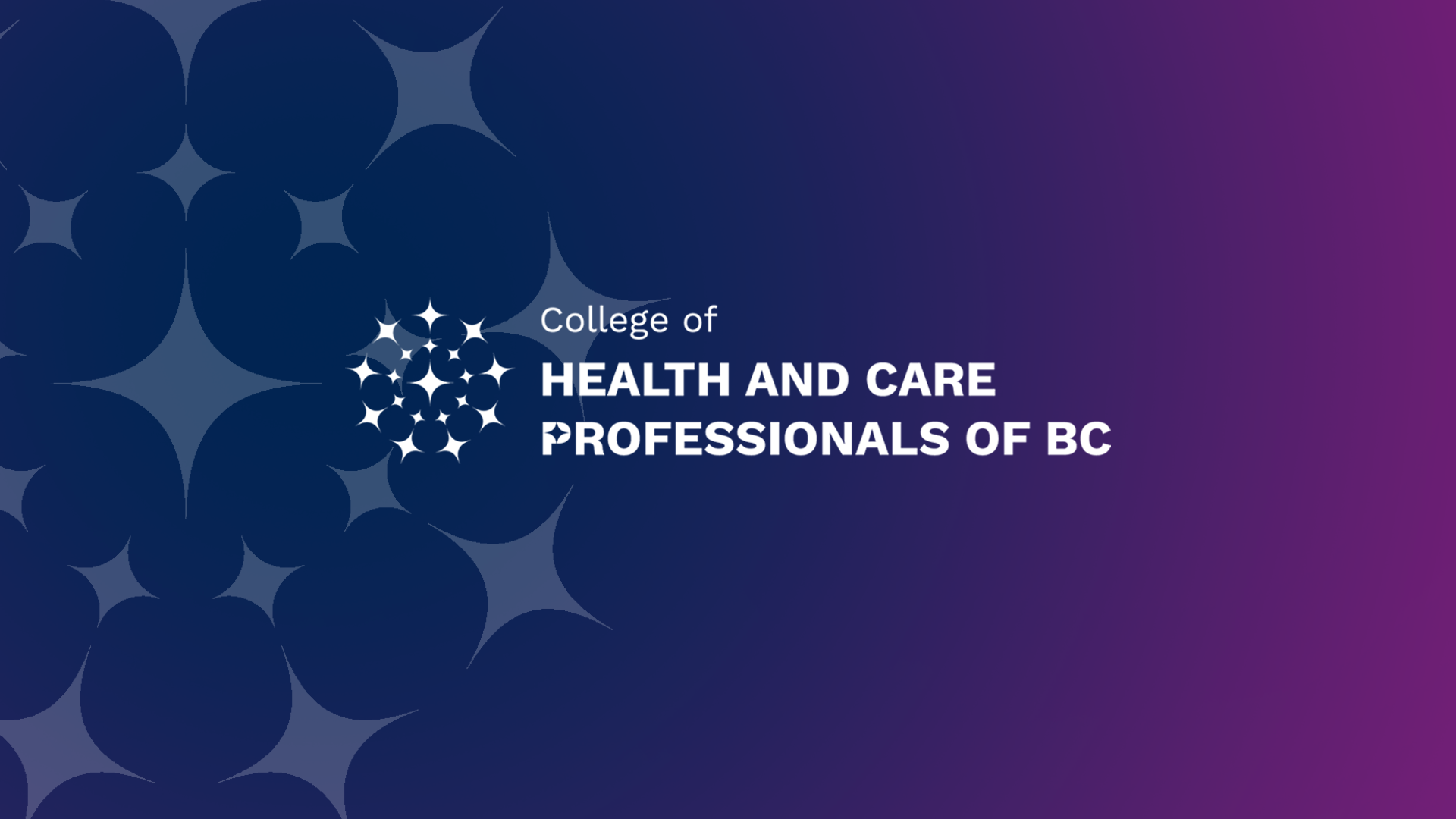On September 19, 2025, the Board of the College of Health and Care Professionals of BC (CHCPBC) approved bylaw amendments to Schedule 10, Certified Practice: Opticianry, Audiology, Hearing Instrument Dispensing, Speech-Language Pathology, and Dietetics. As a result of these amendments, the following videofluoroscopic swallow study (VFSS) certifications will be repealed from the CHCPBC Bylaws effective December 1, 2025:
- Certificate I: Videofluoroscopic Assessment & Management of Adult Swallowing Disorders,
- Certificate J(a): Videofluoroscopic Assessment & Management of Paediatric Disorders for Swallowing Disorders, and
- Certificate J(c): Videofluoroscopic Assessment & Management of Paediatric Disorders for Swallowing Disorders & Velopharyngeal Dysfunction (Combined).
Please note: Certificate J(b): Videofluoroscopic Assessment & Management of Paediatric Velopharyngeal Disorders remains in effect and will be renamed Certificate J. Speech-language pathologists who perform this activity are still required to maintain and renew this certificate.
Registrant accountability and responsibility extend to all services that health professionals provide in all clinical contexts and includes a requirement to prioritize client safety. Regardless of the presence or absence of certification requirements, health professionals must be competent in all areas of their practice, commensurate with their individual expertise and provision of services they provide.
What is the safety of VFSS?
There are very few contraindications to VFSS, and they are usually identified by the physician or radiology technician. Pregnancy and allergy to barium sulfate are the most common. Other reasons may include the patient tolerance to be seated for longer periods of time and ability to follow simple commands.
Patients are primarily referred for VFSS by the health professional who is managing their feeding and swallowing, and it is often that same health professional that will perform the VFSS. At times, other health professionals may refer a patient for a VFSS (e.g., ENT, gastroenterologist, nurse practitioner). It should be noted that administration of videofluoroscopy is provided by a radiology technician and/or radiologist as the procedure involves the use of x-rays.
VFSS is performed in hospital-based settings within the radiology suite. Health professionals involved in this procedure are most often employees of a health authority and are subject to clinical policies, protocols and employer oversight, which adds a layer of safety and quality control. Health professionals may be part of a swallowing assessment team with specific expertise and interprofessional care.
What are certified practices?
Certified practices are additional restricted activities that health professionals are permitted to carry once they have been certified by CHCPBC. Eligible health professionals who obtain the CHCPBC-certified practice designation are authorized to carry out activities specified in their Regulation, if they meet CHCPBC standards, limits, and conditions.
CHCPBC has determined that certified practice is not required for speech-language pathologists to be involved in the provision of VFSS. After December 1, 2025, speech-language pathologists can participate in VFSS without regulatory limits or conditions, such as a certification, as part of their scope of practice. This is supported by the CHCPBC Standards of Practice, and the Canadian Alliance of Audiology and Speech-Language Pathology Regulators’ National Speech-Language Pathology Competency Profile (PDF).
This change acknowledges the entry to practice competencies of speech-language pathologists and brings the regulation of the profession into alignment with other health professionals who are involved in VFSS such as occupational therapists and dietitians.
Diagnosing feeding and swallowing disorders
Diagnosing feeding and swallowing disorders is not specified in the current profession-specific regulations for any of the health professions regulated by CHCPBC.
We acknowledge there is inconsistent allocation of the restricted activity “to make a diagnosis” within the Health and Care Professionals Regulation, which will come into effect on April 1, 2026, among the healthcare professions regulated by CHCPBC. However, these differences are not meant to restrict practice in how other health professions currently perform the assessment and management of feeding and swallowing disorders. Other health professions can continue to make findings and conclusions on feeding and swallowing disorders in relation to their scope of practice.
Ongoing collaborative work with the Ministry of Health
CHCPBC continues to review and liaise with the Ministry of Health to assist the College in understanding the updates to the regulations for health professions that will align with the HPOA, including the Health and Care Professionals Regulation, Regulated Health Practitioners Regulation, and Health Professions and Occupations Regulation, published on July 16, 2025.
While the updated regulations are now publicly available, they will not be in effect until April 1, 2026, when the HPOA comes into force. Under current HPA legislation, the profession-specific regulations, including those professions who support individuals with feeding and swallowing conditions and disorders, continue to remain in effect.
The College endeavors to provide guidance and resources to registrants once CHCPBC receives the necessary information.

